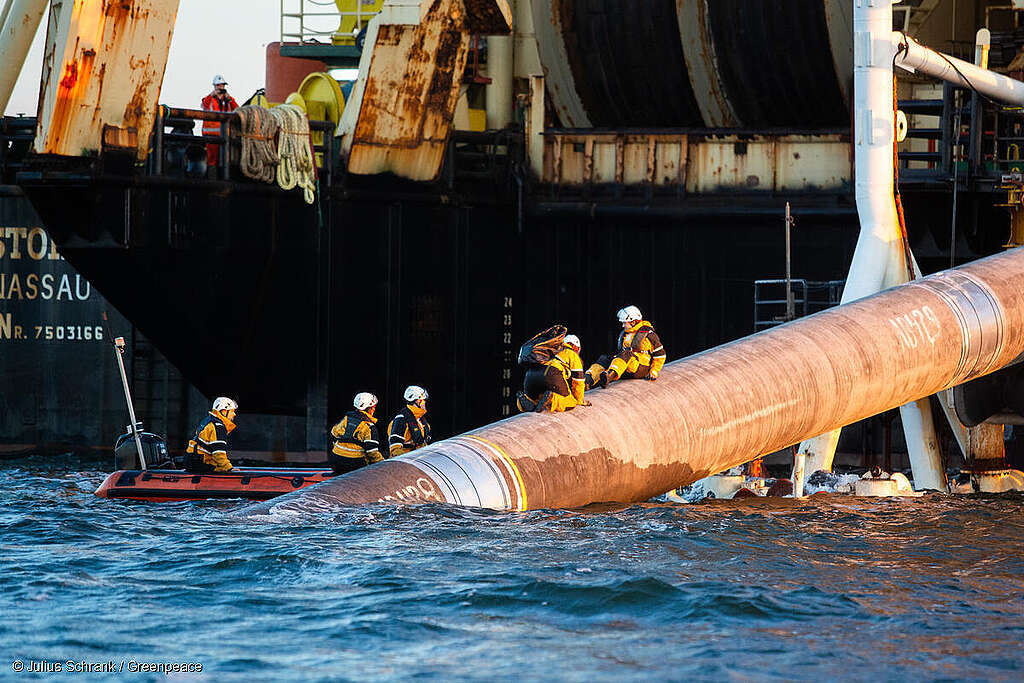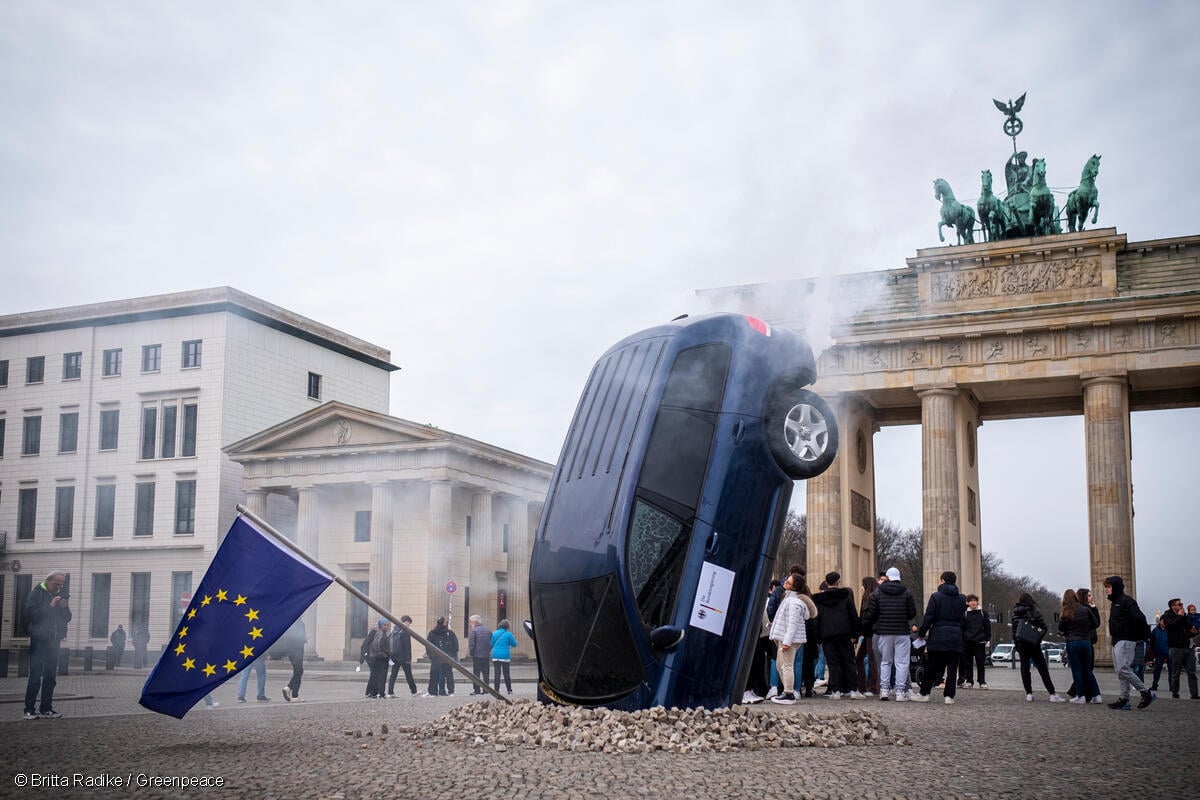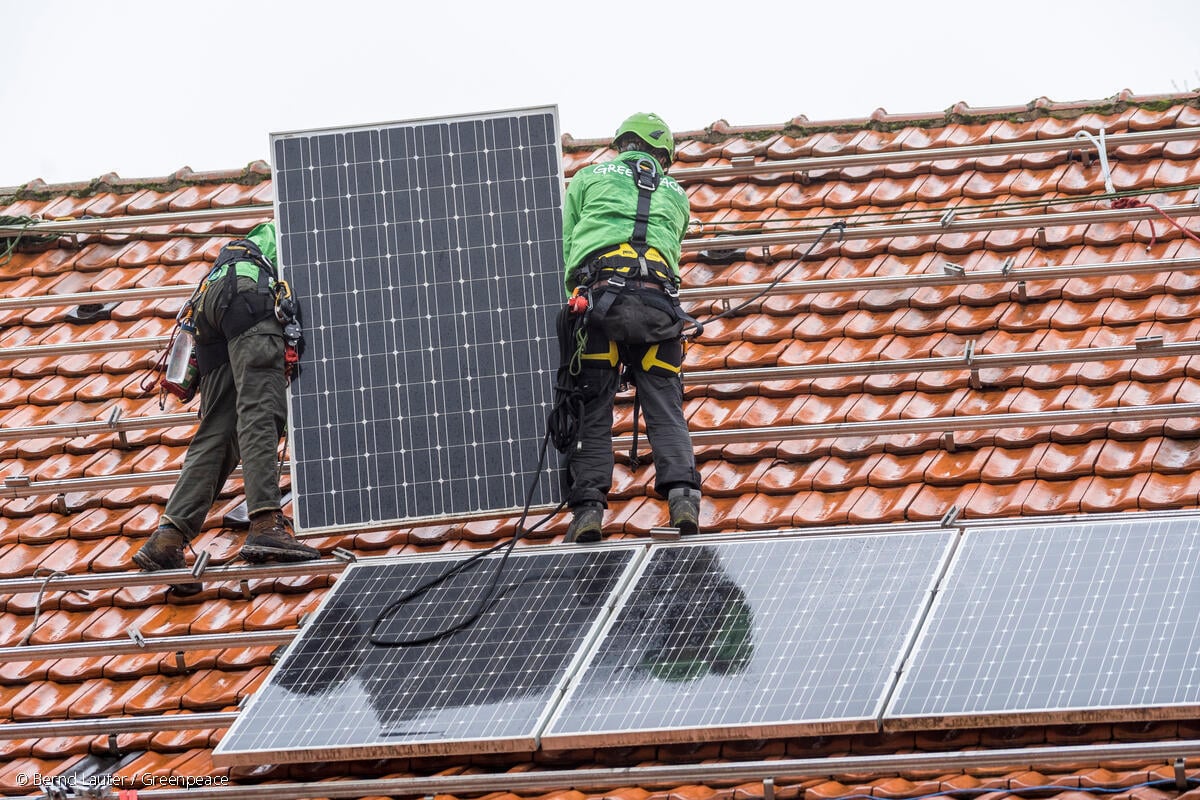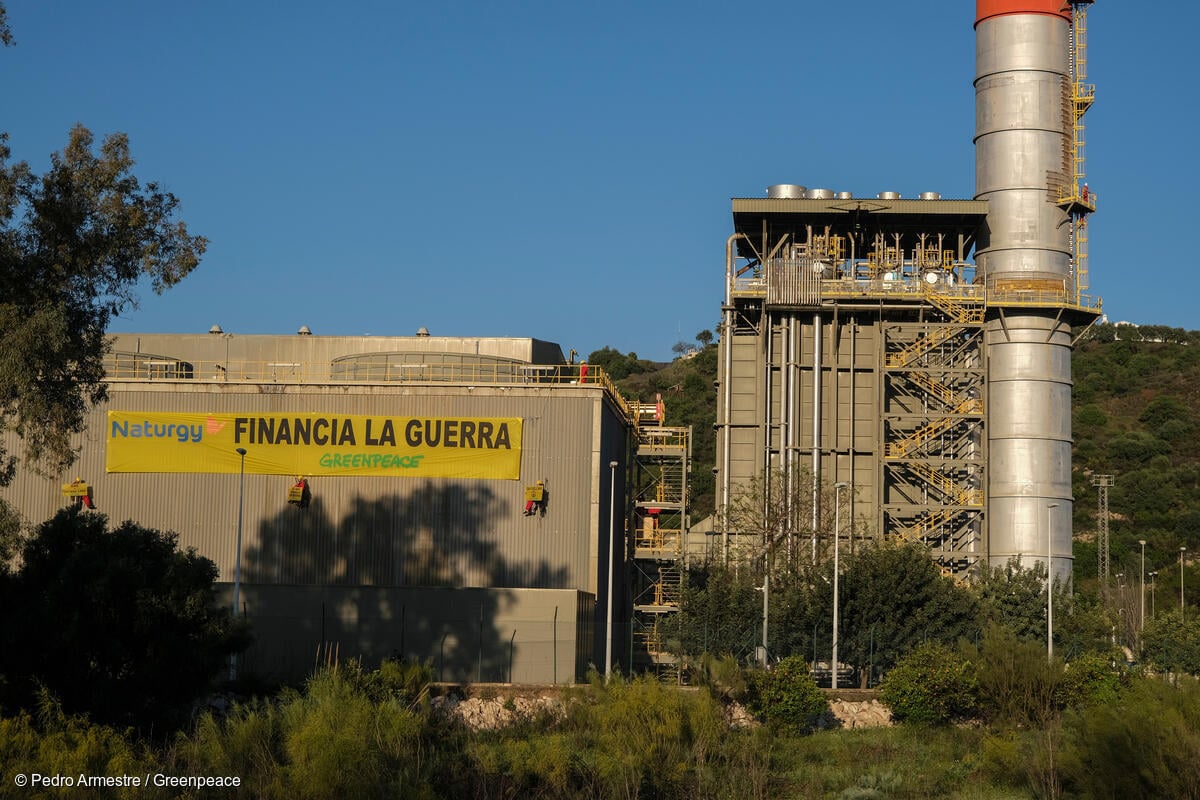Brussels – The planning and management of much of Europe’s future hydrogen infrastructure could be left in the hands of the fossil gas industry, after the European Parliament, European Commission and national governments finished one chapter of their negotiations on the EU’s gas market rules yesterday.

The deal they reached includes minimal safeguards to stop the fossil gas industry developing and running hydrogen transmission networks – long-distance pipelines – but nothing at all to stop them planning and managing the distribution grid – the final delivery to homes and businesses. Campaigners had warned that allowing the gas industry to plan and run a new hydrogen network would be a conflict of interest that would lead to reckless overinvestment in unnecessary infrastructure, and wasteful use of hydrogen for purposes like home heating, contrary to the deal’s stated intention of targeting hydrogen to the sectors that are the hardest to decarbonise.
Greenpeace EU climate and energy campaigner Silvia Pastorelli said: “True green hydrogen will be a precious resource, that will still come at some environmental cost, so the EU mustn’t plan to burn it willy-nilly. The EU must stop burning fossil gas as soon as possible, and thankfully insulation, renewables and electrification can do away with much of the need, but we must leave hydrogen for where it’s really necessary. Handing the keys to the hydrogen grid to the fossil fuel industry risks a like-for-like replacement of hydrogen for gas, and a replacement of one dangerous dependency by another.”
While the agreement mentions the need for decommissioning plans for defunct fossil gas infrastructure, it does not include a phase-out date for fossil gas. The Intergovernmental Panel on Climate Change has said that a rapid phase-out of fossil fuels is necessary to limit global heating.
Next steps
The rules on the EU gas market are in two parts, an EU directive, which the European Parliament, European Commission and national governments agreed yesterday, and an EU regulation, which they failed to agree early this morning. Negotiations on the regulation are scheduled to continue on 8 December.
Those negotiations will hinge on a proposal by the European Parliament to explicitly assign the gas industry, the European Network of Transmission System Operators for Gas, to plan and develop a new hydrogen grid. The European Commission and national governments instead proposed creating a new organisation specifically to plan the hydrogen network (ENNOH).
Greenpeace is warning that allowing the gas industry to take full control of the future hydrogen network would create a massive conflict of interest, leading to wasteful overbuild of infrastructure, with significant financial and environmental costs.
Contacts:
Silvia Pastorelli, Greenpeace EU climate and energy campaigner: +32 496 12 20 94, [email protected]
Greenpeace EU press desk: +32 (0)2 274 1911, [email protected]
For breaking news and comment on EU affairs: www.twitter.com/GreenpeaceEU
Greenpeace is an independent global campaigning network that acts to change attitudes and behaviour, to protect and conserve the environment and to promote peace. We do not accept donations from governments, the EU, businesses or political parties. Greenpeace has over three million supporters, and 26 independent national and regional organisations with offices in more than 55 countries.
EU Transparency Register: 9832909575-41



